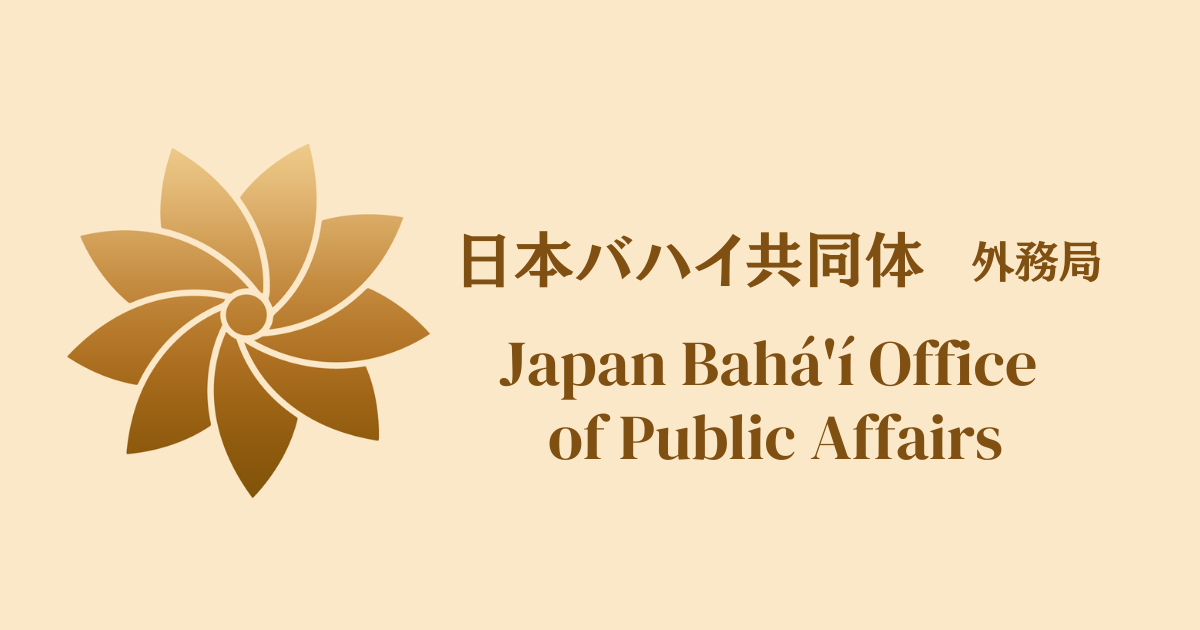Shahin (Shirin) Dalvand, 25

生い立ち
- シャヒン(シリン)・ダルバンドは、1957年12月25日、バハイの家庭に生まれた。
- 花が大好きで、暇さえあれば部屋に花や緑の葉っぱを飾っていた。また、海が大好きで、何度も海辺に足を運んだという。(BahaiTeachings.org)
教育・仕事
- シラーズ大学で社会学を学ぶ。1979年、大学最終学年のときに、家族がイギリスに移住した。祖母とともにイランに残り、学位を取得した。卒業後もイランを離れないことを選択した。(Archives)
バハイの活動
- シャヒンはシラーズで青年委員会とバハイ教育委員会のメンバー、地方精神行政会のリエゾンをしていた。(Abdorrahman Boroumand Center)
逮捕と処刑
- シャヒンは1982年11月29日、バハイのユースの集まりで、Rouhi Jahanpourというバハイ仲間の家で夕食をとっているときに逮捕された。 彼女と逮捕された他の人々は、セパ拘置所に連れて行かれた。1ヶ月以上の後、彼女はアデラバード刑務所に移送された。(Archives) (Abdorrahman Boroumand Center)
- 1982年12月2日、彼女はその女家主とともに革命防衛隊の拘置所に連れて行かれ、最初の処理と尋問の一環として、模擬処刑を受けた。刑務所当局は、彼女を不信心者であり、したがって「不潔」であるとみなし、無神論者の政治犯と同様の屈辱的な扱いを受けた。例えば、目隠しをした囚人を取調室に案内するときでさえ、刑務官は囚人との身体的な接触を拒んだ。そのような場合、看守は彼女に折り畳んだ新聞紙の端を渡し、もう一方の端を持つようにして接触を避けた。最終的にアデラバード刑務所に移送されたが、厳しい収容環境のため、風邪と腎臓の感染症にかかった。(Abdorrahman Boroumand Center)
- 1982年12月26日、彼女は最初の尋問を受けた。数日後、彼女は再び尋問を受け、40万トゥマン(すぐに80万トゥマンに引き上げられた)の保証金と引き換えに解放される可能性があると告げられた。祖母が必要な金額を当局に提出すると、被告人のファイルはすでに宗教判事に送られ、最終的な審査と裁判が行われていると告げられた。バハイ・ワールドの記事によると、当局は被告に4回の「セッション」を行い、そこで信仰を撤回し、イスラム教を受け入れる機会を与えると告げたという。また、バハイ教を否定する声明に署名しない場合は、殺害されると告げられた。これらのセッションがすべて行われたかどうか、また、これらのセッションが裁判に取って代わったかどうかは不明である。(Abdorrahman Boroumand Center)
- シャヒンの友人の一人は、刑務所で一緒に食事をしていたある日のことを思い出し、シャヒンは、その日は自分の誕生日であり、前年には母親が誕生日プレゼントとして美しい新しいドレスをくれたこと、そして今年のプレゼントはバハオラの囚人となることだと話した。友人たちはそれぞれ小さな食べ物を取り、シリンさんの口に入れ、こうして誕生日を祝った。(Persecution of the Baha’i Community of Iran, 1983-1986, compiled on behalf of the Universal House of Justice, in Baha’i World, Volume 19, p. 182; BahaiTeachings.org)
- 起訴状本文はシリンの家族には提供されなかった。しかし、入手可能な情報によれば、被告に対する罪状は彼女の宗教的信条に関連するものだった。勾留中、彼女は尋問を受け、信仰を撤回するよう圧力をかけられた。さらに、Khabar-e Jonub紙に掲載されたインタビューで、この事件を担当したシラーズのイスラム革命法廷の長官である宗教裁判官は、バハイに「親愛なるイスラムを受け入れ、手遅れになる前に、理性的にも論理的にも破滅する運命にあるバハイ教を撤回せよ。」と警告した。(Abdorrahman Boroumand Center)
- また、裁判官は、被告人の罪状や犯したとされる犯罪について詳しく説明し、被告人が逮捕されたのは、バハイ行政会のメンバーであり、イスラエルに拠点を置き、イスラエル政府に従う「正義院」と「直接または間接」の関係があるからだと主張した。(Abdorrahman Boroumand Center)
- 逮捕された人々に関する裁判官の発言も、「バハイのためのあらゆる活動を違法とみなし、委員会、評議会や宴会の組織や開催とそれに類するいかなる活動も犯罪とみなす」という憲法第13条に基づいて、被告たちの宗教活動が犯罪活動であることを強調した。(Abdorrahman Boroumand Center)
- シャヒンは1983年6月18日、シラーズのチョウガン広場で、他の9人のバハイ女性とともに、27歳で、絞首刑に処された。彼女たちの遺体は家族に戻されず、当局によってシラーズのバハイ墓地に埋葬された可能性がある。(Archives)
Early life
- Shahin (Shirin) Dalvand was born into a Baha’i family on 25 December 1957.
- Shirin loved flowers, and when she was free a single blossom or a green leaf could always be found in her room. She also loved the ocean and visited the beach as often as possible. (BahaiTeachings.org)
Education and work
- She studied sociology at the University of Shiraz. In 1979, while in her final year of university, her family moved to the United Kingdom. She remained in Iran with her grandmother to complete her degree. After graduating she chose not to leave Iran. (Archives)
Baha’i activities
- Shahin was a member of Youth and Baha’i Education Committees and a Local Spiritual Assembly liaison in Shiraz. (Abdorrahman Boroumand Center)
Arrest and execution
- Shahin was arrested on 29 November 1982 during a Baha’i youth meeting, while having dinner at the home of a fellow Baha’i named Rouhi Jahanpour. She and the others arrested were taken to the Sepah Detention Centre. Over a month later she was transferred to Adelabad prison. (Archives) (Abdorrahman Boroumand Center)
- She and her hostess were taken to a Revolutionary Guards Detention Centre where on 2 December 1982 she suffered a mock execution as part of her initial processing and interrogation. Prison authorities considered her to be an unbeliever, and thus “unclean”, and she was subjected to humiliating treatment similar to that of atheist political prisoners. Prison wardens refused to have any physical contact with the prisoner even when, for example, they were guiding the blindfolded prisoner to the interrogation room. In such cases guards would give her the end of a folded newspaper and hold the other end, avoiding contact. She was eventually transferred to Adelabad prison, where due to the difficult detention conditions she contracted a cold and kidney infection. (Abdorrahman Boroumand Center)
- On 26 December 1982 she faced her first interrogation session. A few days later she was again interrogated and was told that she could be freed in exchange for a bond of 400,000 tumans—soon raised to 800,000 tumans. When her grandmother presented the required amount to the authorities she was told that the defendant’s file had already been sent to the Religious Magistrate for final review and trial. According to reports by the Baha’i World, authorities informed the defendant that she would be subjected to four “sessions” in which she would be given the opportunity to recant her faith and accept Islam. She was informed that if she did not sign a prepared statement rejecting the Baha’i Faith, she would be killed. It is unclear if all these sessions took place and whether or not these sessions replaced a trial. (Abdorrahman Boroumand Center)
- One of Shahin’s friends remembered a day in the prison when they were having a meal together, and Shahin told them that it was her birthday, and that the year before her mother had given her a beautiful new dress as a birthday gift, and that this year her gift was to be a prisoner for Baha’u’llah. Each of her friends took a little morsel of food and placed it in Shirin’s mouth, and thus celebrated her birthday. (Persecution of the Baha’i Community of Iran, 1983-1986, compiled on behalf of the Universal House of Justice, in Baha’i World, Volume 19, p. 182; BahaiTeachings.org)
- The text of the indictment was not provided to Shirin’s family. However, the available information indicates that the charges against the defendant related to her religious beliefs. While in detention, she was interrogated and pressured to recant her faith. Further, in an interview published in the Newspaper Khabar-e Jonub the religious judge, Head of the Islamic Revolutionary Tribunal of Shiraz, in charge of the case, warned the Baha’is “to embrace dear Islam and …recant Baha’ism, which is rationally and logically doomed, before it is too late.” (Abdorrahman Boroumand Center)
- The judge also discussed at length the charges and the alleged crimes committed by the defendants and argued that they were arrested because they were active members of the Baha’i administration and because of their “direct or indirect” relationship with the House of Justice based in Israel, which follows the Israeli government. (Abdorrahman Boroumand Center)
- The judge’s statements regarding those arrested also stressed that the religious activities of the defendants were criminal activities based on Article 13 of the constitution, which “deems illegal any activity for Baha’is and considers a crime the organization of committees, councils, or receptions and any such activities…” (Abdorrahman Boroumand Center)
- Shahin was executed by hanging on 18 June 1983 in Chowgan-Square in Shiraz, aged 27, together with nine other Baha’i women. Their bodies were not returned to their families; they were possibly buried in the Baha’i cemetery of Shiraz by the authorities. (Archives)
